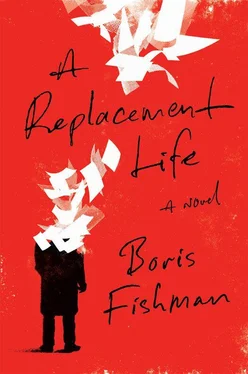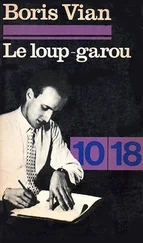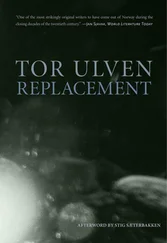Grandfather is seated on the other side of the table, pointing angrily with his right hand. He’s trying to explain something. His left hand is closed around his neck, as if he is wounded or trying to protect himself.
Aaron becomes angry. His arms go wide, as if to say, Well, what do you want from me? How can I change that? Grandfather slaps the table. Another muffled boom. Aaron folds his arms and looks down at the table. “Vi gob ikh ikent visn funderuf?” he says in Yiddish. “How was I supposed to know?”
There is another boom, closer this time; it kicks clods of earth onto the table. Slava waves his hands from the trench, trying to get their attention, but they are busy arguing. He tries to climb out, but the earth is too wet and crumbles in his hands. The chocolate smears his fingers. The battalion commander is laughing again and banging his fist on the ground. The booms are one after the next now. The mackerel has slipped to the ground, swimming in a chocolate sea. Slava is shouting so hard that his throat is tight, his hand rising to shield it.
Finally, the table is knocked to the side. Aaron still has his arms across his chest, but both he and Grandfather are staring regretfully at the earth floating beneath them. Then Aaron looks over at Slava.
He is clownish, almost: a squat face with a broad forehead, the nose like a young potato under broadly lit silver eyes. The hair rises in a wave above his forehead, the face smudged with grease from his Degtyaryov. It’s a worn face, but still young underneath, the unkissed boy, and it lightens when he sees Slava.
They stare at each other, preparing for something. Then Aaron’s face lifts, as if he has found the thing he’s been looking to say, and he’s starting to lean forward when the next boom hits. A hailstorm of damp earth. Like sediment in a stream, it carries a soldier’s peaked cap, Yiddish letters, gold teeth.
Slava awoke in Grandfather’s new bed, already darkness outside, only a tube of light at the foot of the door: the Katznelsons, the Aronsons, all those who had accepted Grandfather’s invitation to come and kibitz while their applications received finishing touches from their adjutants, the children and grandchildren. The applications had to be postmarked to the Claims Conference by the following morning. The applicants were not going to wait to find out if the German government would expand eligibility so they could apply legally.
Walking from the train to Grandfather’s, Slava had kept to the shadows, turning around periodically as if Otto Barber were panting somewhere behind. Then he moved to the center of the sidewalk. He could be walking to his grandfather’s for perfectly innocent reasons. Besides, he had already been caught. He was free.
Little by little, the bedroom revealed its shape in the darkness: Grandfather’s new bed; the armoire where some of Grandmother’s things still hung; the stockpile of paper towels, footbaths, and mouthwash that Grandfather acquired under some unknown arrangement with the pharmacy.
Slava rose heavily and pushed open the bedroom door, the voices rising. How long had he slept? He came straight from work. He crossed the threshold, and all of a sudden pudgy, jeweled hands were at his forehead, remarking on its pallor. “On prosto ustavshi, skol’ko zhe on pishet, predstav’te! Otpustite ego, zhenshchiny!” He’s simply tired, imagine how much he’s been writing; let him go, women! Grandfather watched uneasily, his left hand covering his collarbone, just as in the dream. He had taken to keeping it there lately.
It was Grandfather’s idea: everyone who hadn’t mailed the application, in one place, the evening before the deadline. Everyone was surprised that Grandfather would propose it. Berta undertook an epic shopping excursion while Slava’s mother called everyone on a list he had made of the letters he’d written. No one wanted to be disqualified because he forgot to photocopy his birth certificate. For this, feuds and misunderstandings could be laid aside for a night, insults temporarily forgotten, dead friendships briefly revived.
Someone’s enterprising daughter drew up a checklist, taped to the refrigerator (she had taped it to the wall, but fearing marks to Slava’s father’s paint job, Berta moved it discreetly):
Did you fill out Form 88-J?_____
Did you photocopy your green card/citizenship certificate/permanent alien card/passport?_____
Did you include two witnesses?_____
From the guest list Slava’s mother had prepared, the young woman copied the last names of every one of these permanent aliens, forming a table. Before anyone left, they had to check all the boxes. Next to the list was a stool: paper clips, a stapler, folders, pens. It was a war room.
Slava watched, unnoticed, from the threshold of the living room, forks scraping against plates and wafers being dunked into tea: Anna Shpungin (Kishinev/Bay Ridge), Feyga Shlomberg (Riga/Sheepshead Bay); Borukh Feinberg (Gomel/Borough Park). Slava had written letters for them all: the insulted and the injured, monsters from a place their blood would never know again.
They had been there since the afternoon, the stapling and filing staffs gradually joining, the younger generation’s professions determining the order of appearance: the physical therapists, then the pharmacists, followed by the publicists and accountants, and finally, the lawyers and doctors. It was already past nine. They were still waiting for the investment bankers.
Who had called Otto Barber? Was it Lyuba Rudinsky, unable to let go of her grudge before one final comeuppance for the high heads of the Gelmans? Was it someone Slava turned down, angry at having to do without what everyone else was getting? They had struck a moral bargain with themselves; they would say someone was forging, but they wouldn’t say who. Or perhaps Otto had lied about the Century goose chase, and Slava really was named by the caller. But why? Slava stopped himself. Once you started making things up, everything was up for doubt.
Slava crossed into the living room, and the conversation stilled. A male voice said: “A vot nash pisatel’!” And here is our writer. They began to clap, everyone, the old and the young, the sound loud enough to reach the Mexicans downstairs, and someone — it was Garik, Vera’s father, the full complement of Rudinskys had come — even stuck two fingers in his mouth and whistled, which made everyone laugh. Vera laughed, too. She caught Slava’s gaze and smiled. He smiled back. The sight of her after the evening with Otto was consoling to an erotic degree, a surprise.
Soon others arrived, and with their appearance, the moment vanished. Slava kept checking the door for Israel — if he could hobble over to the synagogue, he could hobble over here — but there was no sign. Someone arrived with a whinnying infant. The little head wobbled and lifted, wobbled and lifted, like a drunk person’s. What customs would this small person follow? Would his little tongue curl away from kvass , the tiny nose indifferent to the smell of butter and onions in a linoleum kitchen? In some yard sticky with summer, the now grown fingers wrapped around a can of warming beer, would his head whir to calculate, for the benefit of some pale-skinned American girl, what portion of itself it owed to the chocolate loam of that other place? When, some years on, his great-grandmother, for whom his uncle Slava had once forged a letter, passed away, the Holocaust-funds-renewal certificate trailing her death by a month, would he trace the uncertain curlicues of her name in English as if her hand were his own? Or would he follow the law?
When no one was looking, Slava took into the bathroom a matchbox and the lined piece of notebook paper with the names of everyone for whom he had written letters. There was no point: Otto knew what he wanted to know, and yet. The paper burned quickly, the edges curling into his hand, so that Slava had to drop it in the sink and start again. This would be more difficult with the list affixed to the refrigerator; Slava’s mother wanted to frame it. She was out there now, she and Lyuba Rudinsky clutching each other like lost sisters.
Читать дальше











